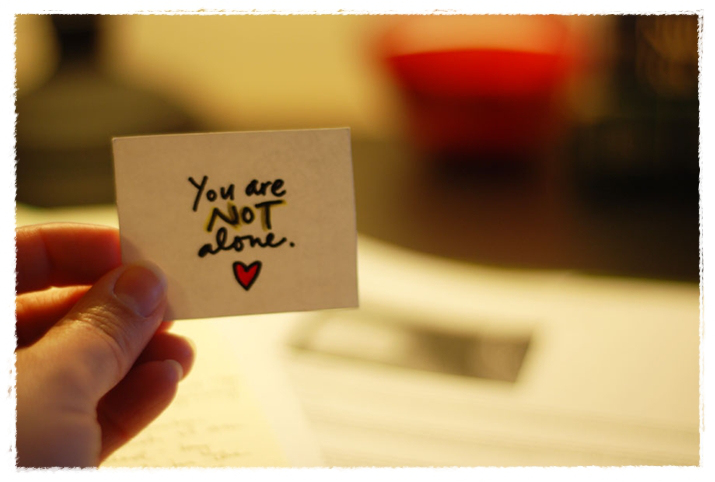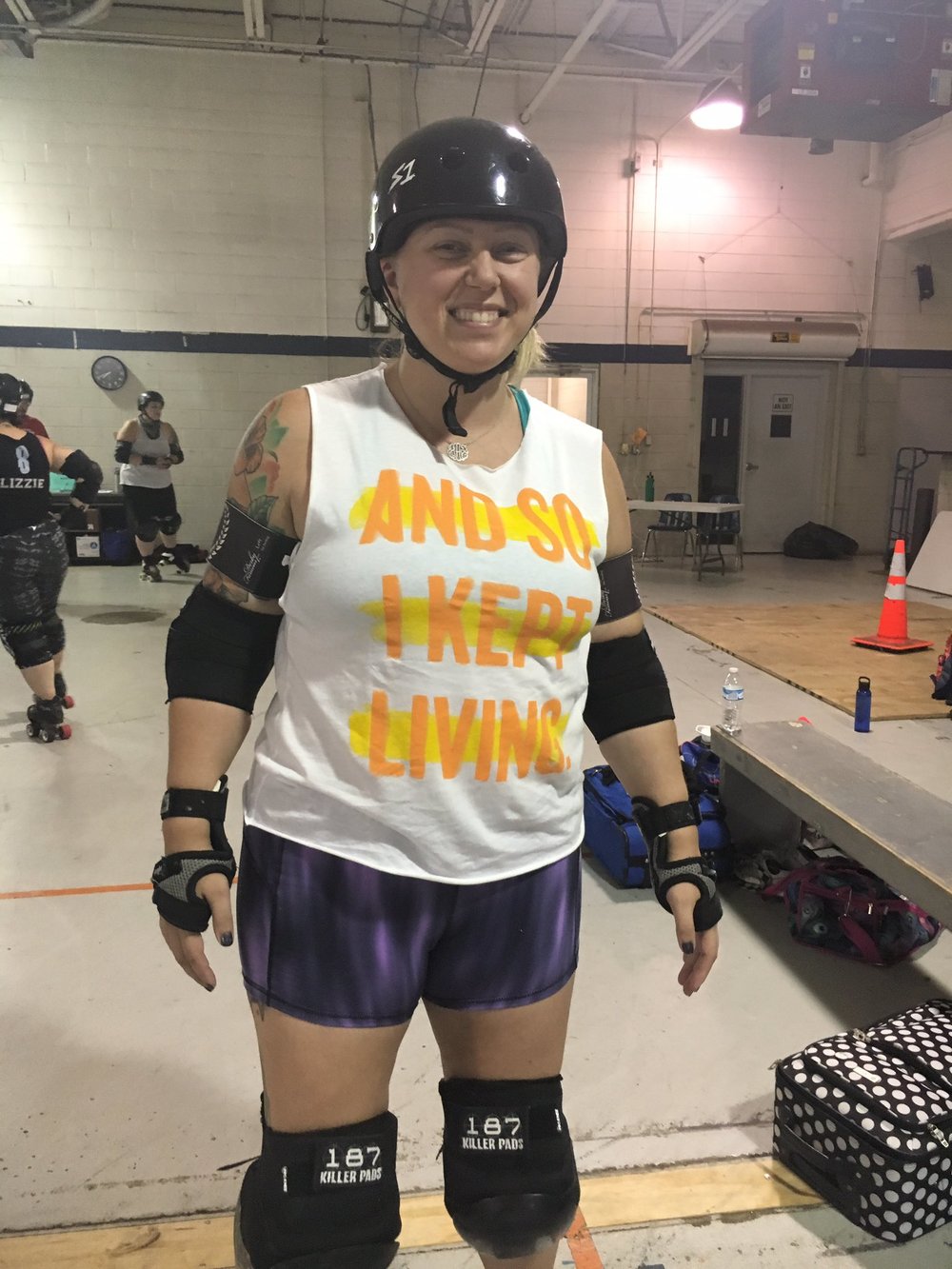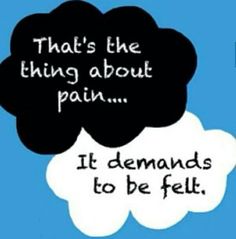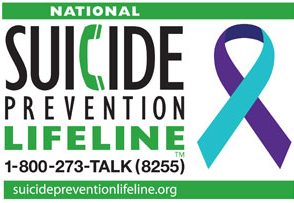Coping | IBD | Information

Today is World Suicide Prevention Day.
And I just want to get a few things out of the way…
YOU ARE NOT A BURDEN.
YOU ARE LOVED.
IBD HAS NOT TAKEN EVERYTHING FROM YOU.
THERE ARE REASONS TO KEEP GOING.
If you’re reading this right now, and your heart sank or you rolled your eyes about any of those statements that I just wrote please email me right now so we can talk about it. Jackie@girlswithguts.org
Can I be honest? I think we’re among friends here, so I’d like to be REALLY honest with you about why suicide prevention is REALLY important. I wanted to share those 4 statements with you because when I was in the depths of sickness, and started to contemplate my worth and purpose, those were statements that I couldn’t tell myself.
Living with IBD is hard, you guys, and I’m not just saying hard because its stressful. It’s not just hard because it hurts or because going to the doctor or hospital all the time is exhausting. IBD is hard because of the way that it digs itself deep into the darkest corners of your mind, and it begins to tell you lies about who you are, what you can do, and the people who love you.
Here are some of the things IBD told me:
Living with both IBD and depression can mimic each other pretty closely. I’m going to make a list of typical symptoms; can you tell me if this list belongs to depression or IBD?
Technically this is a list of symptoms for people with depression, but before I was depressed, I had IBD and with IBD I had most of those symptoms. After my depression and anxiety worsened, I felt every symptom on that list and then more.
The following is a list of potential warning signs for someone who is suicidal.
Now based on that list, tell me how much of that just sounds like the average IBD patient?
 What I want you to take away from this is NOT that every IBD patient is depressed or suicidal. What I want you to remember is that IBD often looks and feels a lot like depression, but when you add in the physical pain and stress from IBD, it can amplify both depression AND IBD.
What I want you to take away from this is NOT that every IBD patient is depressed or suicidal. What I want you to remember is that IBD often looks and feels a lot like depression, but when you add in the physical pain and stress from IBD, it can amplify both depression AND IBD.
My IBD had spent a lot of its time and effort getting inside my head and telling me that because I have IBD I am not worthy of a great life; that I can never have a great life and at times that I didn’t even deserve to have a great life.
My depression told me that my IBD was right.
And my anxiety left me in fear of try to defy either of them to get my life back. So there I was, convinced I was leading a life that had no worth, purpose or happiness left in it.
As a chronic illness patient, we are reminded every day that there is no cure and your disease will never go away and that can easily manifest itself into the thoughts and behaviors listed above.
 But I want to tell you something. And this is something that I couldn’t hear for a very long time. While depression and IBD are medical conditions that are out of our control…we can always control our attitudes.
But I want to tell you something. And this is something that I couldn’t hear for a very long time. While depression and IBD are medical conditions that are out of our control…we can always control our attitudes.
Did you roll your eyes? Because I did TONS of times when I heard that. But I have to be honest. Changing my attitude and my inner monologue is why I’m sitting on my couch writing this blog today. If I had continued to let my depression, IBD and anxiety wreak havoc on my attitude, I would never made it out alive.
I want to be clear that I’m not saying you can rid yourself of depression or IBD by changing your attitude but over time, you can change the pathways in your brain to create more rational and realistic thoughts.
Here are some examples of things I’ve told myself:
I used to say:
“I will never get better”
What I’d say now:
“It feels like I will never get better. But I know that even when things are at their worst, they always get better even if it’s just a little bit or for a short period of time.”
I used to say:
“I can’t ask my family for help with this.”
What I’d say now:
“I don’t want to ask my family for help with this, but I know they love me, and I know they want to help me.”
I used to say:
“I’m going to end up alone because of all of this”
What I’d say now:
“I’m afraid I won’t find a partner capable of handling my complicated health, but if I could support someone else doing this, there must be someone who can support me too”
 I’m not saying you can’t feel sad thoughts, in fact I encourage you to feel them.
I’m not saying you can’t feel sad thoughts, in fact I encourage you to feel them.
Pain demands to be felt.
I spent a lot of time feeling a lot of physical and emotional pain and over time it just perpetuated itself because I never jumped in front of the “bad thought train” and told myself that even though I felt it, it didn’t meant those thoughts were true.
I’ve since spent a lot of time reading books, and even more time in therapy in order to retrain my brain to think about my illnesses differently, and to remind myself that there are some really cool aspects of my life that are not contingent upon my disease.
Through medication and therapy, I have even been able to see the gifts I’ve been given because of my diseases.
I won’t lie and say my life is constant sunshine and rainbows, but when I finally allowed myself to see that there is some light out there, it made it that much easier to see it again and again. I still work hard at my mental health every day, and think that therapy and medication have gotten me to the stable place I am in today. But I also think that some positive self-talk and self love has amplified what I am able to do with the help of these other tools.
If you need to reach out to anyone, please don’t hesitate to use these resources:

National Suicide Prevention Lifeline – 1-800-273-TALK (1-800-273-8255)

Crisis Text Line – Text “TWLOHA” to 741-741
[Both resources are available 24×7]

I have had UC since I was 15 years old. As the years go by it progresses. I am 53 now. Thank God I am alive everyday. I was hospitalized twice in 2014 and 2015, I got worse. What helped me was I went back to the old fashioned medication and almost immediately I got better. It has not been easy but eating organic and having a strong support system helps.